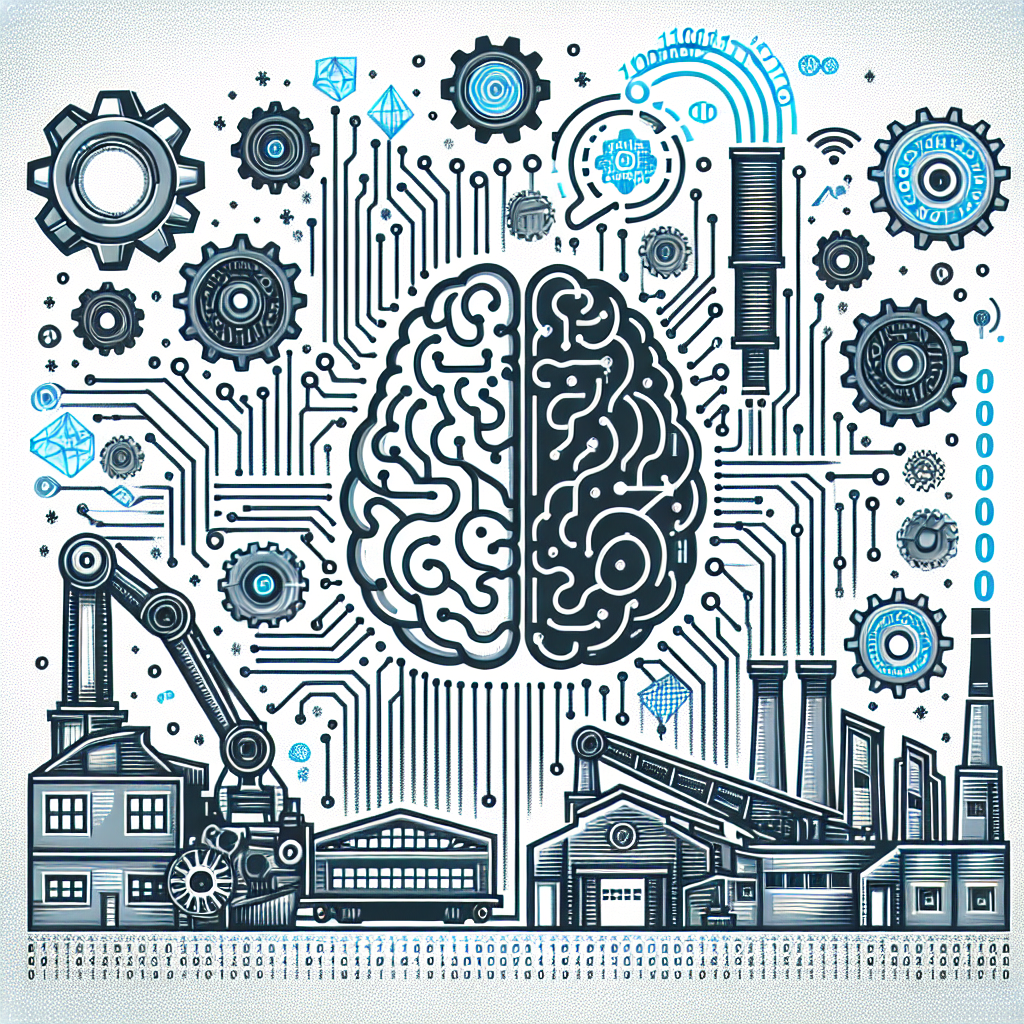In recent years, the manufacturing industry has seen a significant transformation with the rise of artificial intelligence (AI) and big data analytics. These technologies have revolutionized the way manufacturers operate, enabling them to optimize production processes, improve efficiency, and make data-driven decisions. In this article, we will explore the impact of AI and big data analytics in manufacturing, as well as some frequently asked questions about these technologies.
AI in Manufacturing:
Artificial intelligence, or AI, refers to the simulation of human intelligence in machines that are programmed to think and act like humans. In manufacturing, AI is being used to automate tasks, predict maintenance needs, and optimize production processes. One of the key applications of AI in manufacturing is predictive maintenance. By analyzing data from sensors and equipment, AI can predict when a machine is likely to fail and alert maintenance teams to take action before a breakdown occurs. This helps to prevent costly downtime and improve overall equipment effectiveness.
Another application of AI in manufacturing is quality control. AI algorithms can analyze images of products to detect defects or anomalies that may not be visible to the naked eye. This allows manufacturers to identify and address quality issues before they impact production or reach the customer. AI is also being used to optimize production schedules and inventory management, leading to reduced waste and improved efficiency.
Big Data Analytics in Manufacturing:
Big data analytics involves the process of examining large and varied data sets to uncover insights, patterns, and trends. In manufacturing, big data analytics is used to analyze data from sensors, machines, and production processes to optimize operations and improve decision-making. By collecting and analyzing data in real-time, manufacturers can identify inefficiencies, predict future trends, and make data-driven decisions to improve overall performance.
One of the key benefits of big data analytics in manufacturing is the ability to optimize production processes. By analyzing data from sensors and machines, manufacturers can identify bottlenecks, reduce downtime, and improve overall equipment effectiveness. Big data analytics also enables manufacturers to forecast demand, optimize inventory levels, and improve supply chain management.
FAQs about AI and Big Data Analytics in Manufacturing:
1. What are the key challenges of implementing AI and big data analytics in manufacturing?
One of the key challenges of implementing AI and big data analytics in manufacturing is the complexity and volume of data that needs to be analyzed. Manufacturers need to invest in the right infrastructure and technologies to collect, store, and analyze large amounts of data in real-time. Additionally, there may be resistance from employees who are accustomed to traditional methods of operation. Training and change management are essential to ensure successful adoption of AI and big data analytics in manufacturing.
2. How can AI and big data analytics improve quality control in manufacturing?
AI and big data analytics can improve quality control in manufacturing by analyzing large amounts of data from sensors, machines, and production processes to detect defects or anomalies. By using AI algorithms to analyze images of products, manufacturers can identify quality issues early in the production process and take corrective action to ensure that only high-quality products reach the customer.
3. What are the benefits of predictive maintenance in manufacturing?
Predictive maintenance in manufacturing helps to prevent costly downtime by predicting when a machine is likely to fail and alerting maintenance teams to take action before a breakdown occurs. This enables manufacturers to schedule maintenance when it is most convenient and avoid unexpected production interruptions. Predictive maintenance also helps to extend the lifespan of equipment, reduce maintenance costs, and improve overall equipment effectiveness.
4. How can manufacturers leverage AI and big data analytics to optimize production schedules?
Manufacturers can leverage AI and big data analytics to optimize production schedules by analyzing data from sensors, machines, and production processes to identify bottlenecks, reduce downtime, and improve overall equipment effectiveness. By collecting and analyzing data in real-time, manufacturers can make data-driven decisions to adjust production schedules, allocate resources more efficiently, and meet customer demand more effectively.
In conclusion, AI and big data analytics are transforming the manufacturing industry by enabling manufacturers to optimize production processes, improve efficiency, and make data-driven decisions. By leveraging these technologies, manufacturers can reduce costs, increase productivity, and stay competitive in today’s fast-paced market. As AI and big data analytics continue to evolve, we can expect to see even more innovative applications and benefits in the manufacturing sector.

